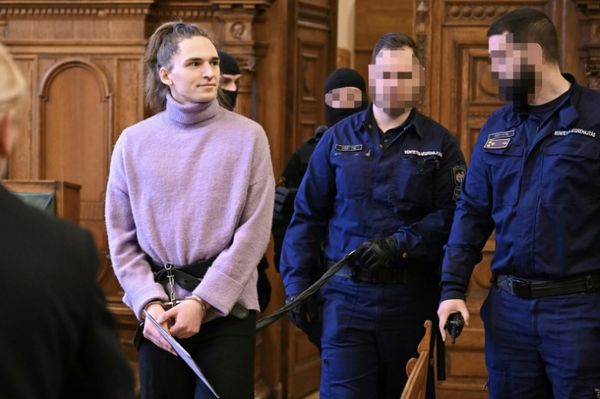With proximity to the South Australian and Northern Territory borders, one of Australia's most remote communities is facing a renewed urgency to boost COVID-19 vaccination rates.
On top of traffic along the Great Central Road, the remote Aboriginal community in the Ngaanyatjarra Lands usually attracts Indigenous people from throughout the country's centre for family and cultural events.
As of December 8, only 43 per cent of Indigenous people in the Ngaanyatjarra Lands were fully vaccinated.
With COVID-19 scares over the border in neighbouring states, community leaders are concerned an outbreak could be devastating.
On Monday, SA Health said the virus was detected in the wastewater in Pipalyatjara, just 30 kilometres from the West Australian border.
SA Health is awaiting secondary testing.
Shire of Ngaanyatjaraku president Damian McLean said the Pipalytjara community was usually well connected with communities in the Ngaanyatjarra Lands.
Border compliance a challenge for transient population
The use of back roads and the remoteness of these communities makes policing border movements difficult.
Local elder Teresa Newland said many Indigenous people, whose ancestors travelled freely before the existence of state borders, may not be fully aware of border restrictions.
"That's why it's important for them to have their injection so that they can be safe and not carrying anything."
The magistrate acknowledged Aboriginal cultural customs predate state borders, and many living in remote communities may not understand border restrictions.
But shire president Damian McLean said the scare across the South Australian border clarified the seriousness of those restrictions.
"There's a real heightened awareness that people in Pipalyatjara have to stay in Pipalyatjara and there is to be no travel across the border," Mr McLean said.
The COVID manager at the Warburton Clinic, Leanne Gallagher, said Ngaanyatjarra Heath was doing everything it could to lift rates.
"We'd like to see the vaccination rate a lot higher out here, especially with the Aboriginal community being so transient. They travel quite a bit within other communities and other states," the registered nurse said.
Vouchers for jabs
In an effort to boost rates, Ngaanyatjarra Health is offering locals up to $200 in food vouchers to get vaccinated.
"We were trying to work out what we could give as an incentive," Ms Gallagher said.
"We've done the barbecues and we're doing phone cards and it was suggested a food voucher may be more beneficial."
She said the remote nature of the community and its increased vulnerability to diseases meant dealing with COVID would be especially difficult.
"It does [worry us] being out here because we are limited with our health services," Ms Gallagher said.







